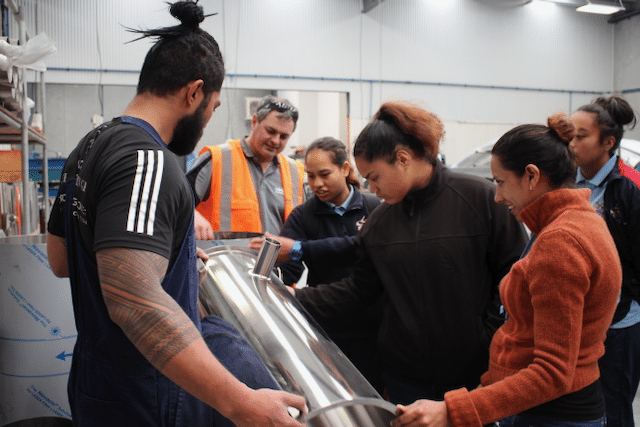ABOUT US
Our Story
Smart Waikato is a charitable trust formed in 2009 with the purpose to empower youth and employers through real education and employment pathways. We do this by partnering with iwi, business, education and government agencies to deliver a range of practical, effective and innovative initiatives that better support young people transitioning from education to employment.
Smart Waikato Trust is best known for Smarter Futures Waikato, Secondary School Employer Partnerships (SSEP), Career Hauora, SPAN, endorseMe® Employability Record, Smart Transitions, FAN Workshops and co-ordination of the Lion Foundation Young Enterprise Scheme in the region.
Smart Waikato is also the regional strategic partner of FutureForce® Careers Hub.
Why we do what we do
The objectives for which the Trust was established are:
- To empower all people, and in particular youth, through real education to employment pathways, via projects and fund-raising activities.
- To build purposeful, sustainable partnerships with community, iwi, central and local Government, educators and employers
- To facilitate connections to enable successful youth transitions to sustainable employment
- To recognise and respond to the specific needs of Māori and other communities
- To promote access to resources, support structures and workplace opportunities for educators, students, employers and unemployed or underemployed people
- To help students and parents make more informed career path choices based on the current and future needs of the employment market
- To foster innovation, enterprise, skills enhancement and work readiness
Our Theory of Change
If young Waikato people receive relevant education, careers and transitions experiences, and are connected to employers who support them with learning opportunities, they are more likely to progress to decent jobs and incomes, leading to greater health, wealth and wellbeing for themselves, their whānau and their communities.
Our Theory of Change aligns with Sustainable Development Goals 8 – Decent Work and Economic Growth, 4 – Quality Education and 10 – Reduced Inequalities.


